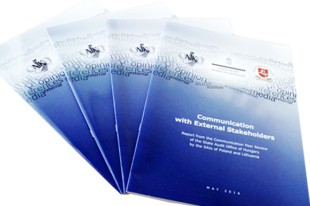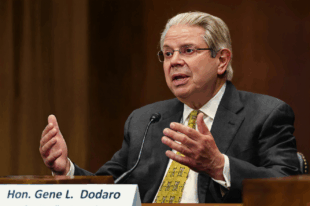Grand National Débat: The French Supreme Audit Institution Connected to the Citizens
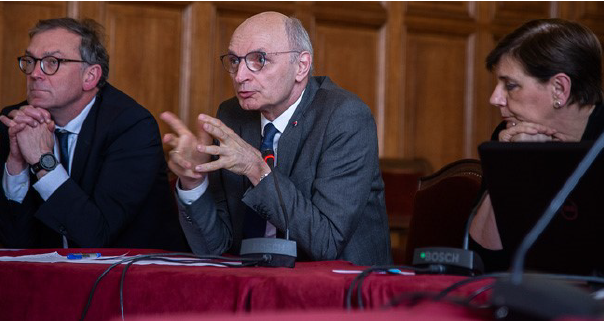
by Benjamin Negre and Maria Heyaca, French Cour de comptes
Confronted with a movement protesting the gas tax increase, the French government took action by launching a National Grand Débat to promote direct exchange with citizens. This national consultation was designed to shed light on citizen concerns within four main themes—ecological transition, taxation, public services and democracy.
The consultation was divided into two phases: (1) exchanges between citizens and city mayors through local debates highlighting questions raised on the four main themes; and (2) citizens opinions and proposals to address concerns on the four main themes, which would be captured using a dedicated website.
Such a large scale and diversified consultation throughout France had not taken place in the country since 1788 (the year preceding the French Revolution).
There were more than 8,000 local initiative meetings and nearly two million contributions, of which more than 14,000 specifically mentioned the French supreme and regional audit institutions.
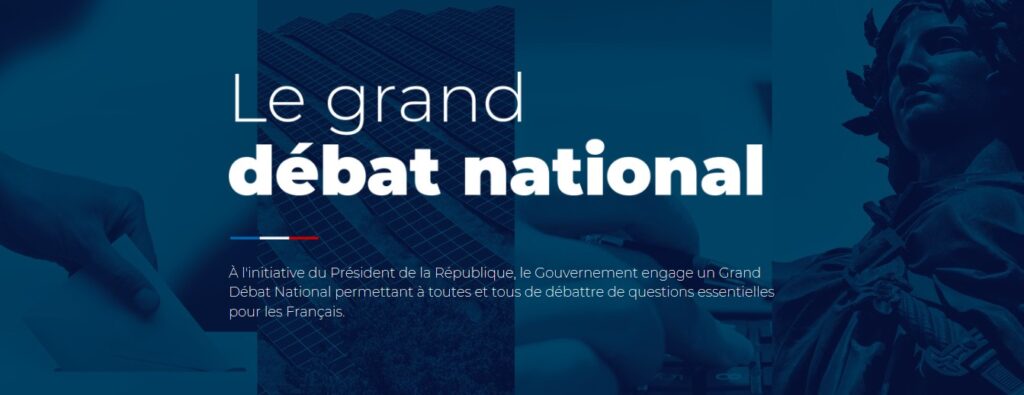
The Project—Goal, Methodology, Importance
Simply reading Grand Débat summaries would not be enough—the French Supreme Audit Institution (SAI) wanted to learn more. The Technical Support Center, driven by the Department of Methodology and Data Analysis, developed a methodology to analyze the results. The goal was simple: understanding citizen expectations of the SAI.
The technical support teams relied on both artificial and collective intelligence to address the analysis challenge. Among the 14,000 relevant contributions, three common themes were identified: general perception of the SAI; perception of its recommendations; and accountability and sanctions of public accountants and official managers.
Workshops were then created around these three themes, and 130 volunteers—representing technical teams and the SAI at all levels—gathered to read, analyze and tag as many contributions as possible. An additional technical workshop was established aimed at developing tools to monitor the outputs of the first three workshops.
Didier Migaud, First President of the Cour de comptes (Cour), provided opening remarks at this historic event.
He stressed the importance of listening to what had been expressed about the institution and remarked that “financial institutions are not in an ivory tower.”
Nadia Boeglin, National Grand Débat program manager, applauded the SAI’s initiative and mobilization, noting that this project was the first (and only) operation of its kind among French institutions.

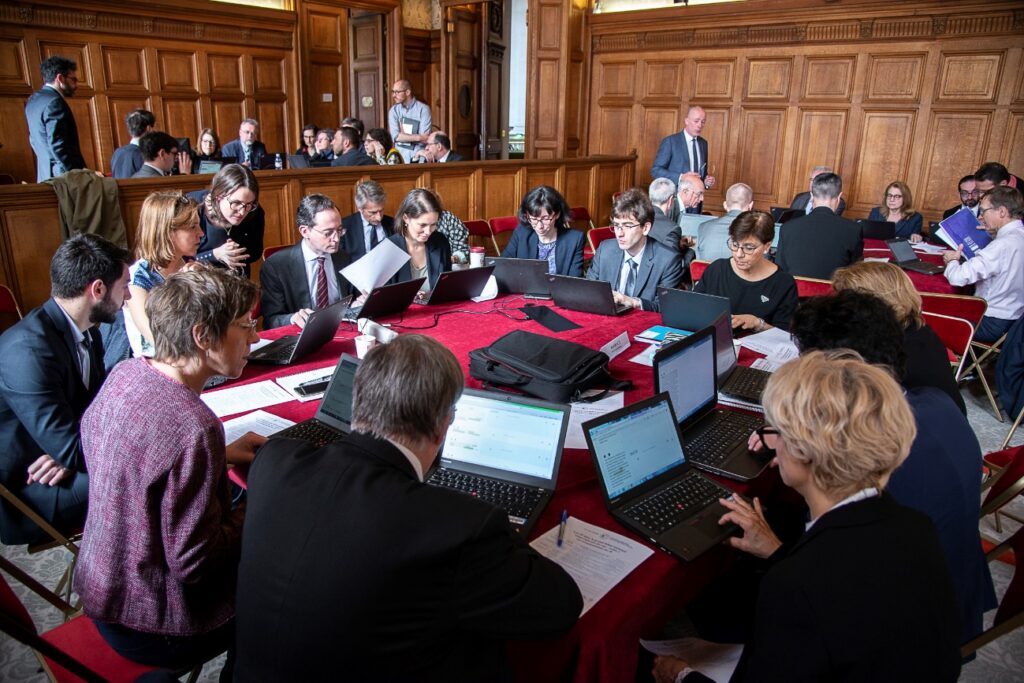
The Project—Results
Workshop outputs (based on 8,500 contributions volunteers were able to tag) were presented to the First President, the General Rapporteur and all project participants, which allowed the SAI to sketch an accurate picture of citizen perceptions. The output resulted in five main conclusions:
- The SAI benefits from a level of popularity almost unparalleled among French institutions. With a 70% positive response rate, contributions showed a high level of trust in the SAI and its work—nationally and locally.
- Citizens have considerable expectations. Many expressed disappointment in how decision makers overlooked recommendations. Some contributions proposed increasing SAI powers.
- Citizens expressed distrust toward public administrations and institutions, as well those in charge of them. Several contributions made note of perceived fraud, waste, mismanagement and irregularities, with 44% asking for greater accountability for political officials and 28% asking similarly for civil servants.
- While many citizens were unsure as to what the Cour does, contributions included suggestions to address this issue, including “the Cour should decide each year on the execution of the State budget,” which it only assesses. Contributors also proposed improving communication by providing reports that are shorter and are written in a simpler, more comprehensible language, as well as creating summaries using infographics.
- The idea of broader citizen involvement in the Cour’s work was frequently mentioned, such as establishing citizen committees to participate in SAI audits; performing citizen-initiated audits; and establishing citizen referendums on Cour recommendations.
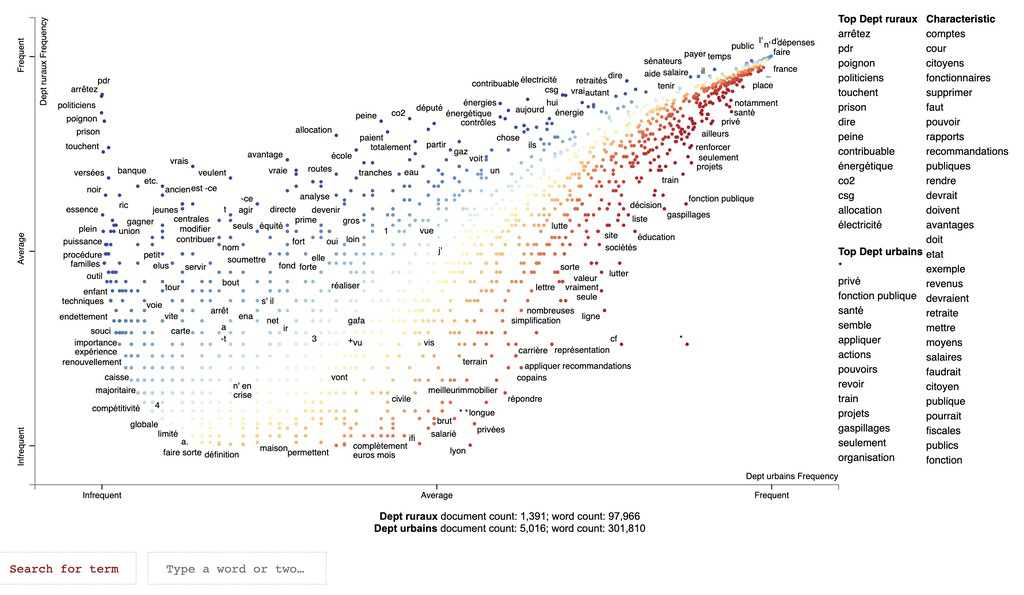
Conclusion
Migaud confirmed the project’s results represent a starting point for broader reflection on the Cour’s future, citing the significance of citizen engagement, while also stressing the importance of remaining an independent, impartial institution by focusing on its four core missions (certifying, judging, auditing and evaluating).
Migaud expressed his appreciation to all project participants, noting that the event fostered communication among people who do not generally work together or interact on a daily basis. The project also proved the special relationship with citizens and highlighted the Cour’s ongoing digital transformation.
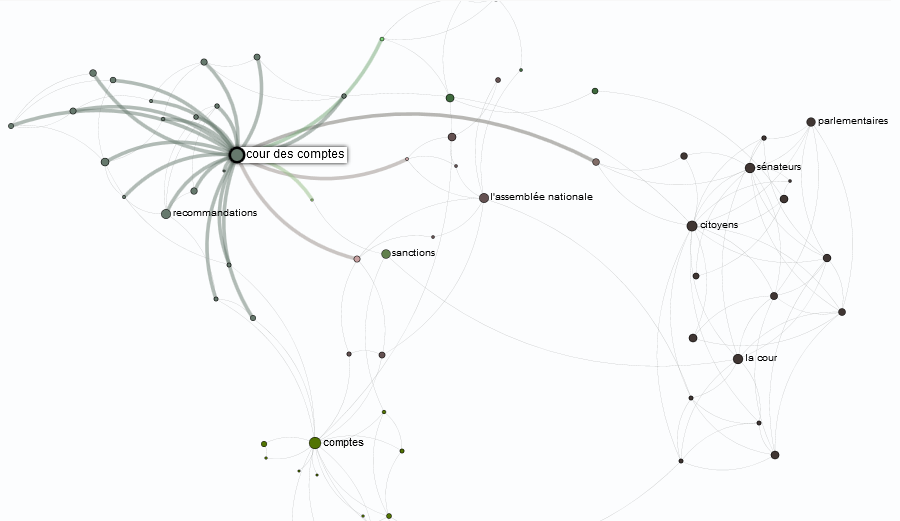
Access the article in pdf form here.

